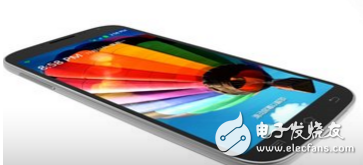On the afternoon of January 5th, Beijing time, according to Gartner, the number of smart phones equipped with artificial intelligence (AI) technology will increase by 70% in the next four years, from 10% in 2017 to 80% in 2020.
Gartner believes that smartphone manufacturers will add a variety of artificial intelligence functions to their products, so that their products will bring different experiences to consumers and meet the increasingly rich needs of consumers.
Gartner research director Lu Junkuan (CK Lu) said: "With the increasing popularity of smartphones, mobile phone manufacturers are looking for new ways to differentiate their products. In the future, AI functions on mobile phones can make Mobile phones have the ability to learn, mobile phones can help users plan and solve problems. AI not only makes smartphones smarter, but also helps users reduce cognitive load."
Currently, only high-end models of smartphones have AI capabilities, and these features are only focused on data protection and power management.
Robert Cozza, another research director at Gartner, said: "In the next two years, most smartphones will still use simple AI functions. But look a little further and smart phones will merge. A variety of AI functions, to give users a better experience."
Gartner believes that 10 AI features will be logged into smartphones in the future. They are:
1. Predict user behavior
The smartphone will use sensors, cameras and data to predict what the user wants to do next.
Angie Wang, a research analyst at Gartner, said: "In a connected home, AI orders a vacuum cleaner when no one is at home, or turns on the rice cooker 20 minutes before the user arrives home."
2. User identity authentication
If you can't remember your password, or feel that typing a password for verification is too cumbersome, then AI behavior recognition will help you. Gartner believes that in the future mobile phone manufacturers will gradually give up password-based authentication, because this method of verification is not only troublesome to use, but also not very high security.
The alternative password will be the AI ​​security system, which can verify the user's identity by learning the user's behavior, such as analyzing the user's walking, sliding the screen and typing.
3. Emotional recognition
Emotional detection systems will make virtual personal systems more powerful and emotionally intelligent.
For example, car manufacturers can use the front camera on the phone to analyze the driver's current physical condition, or fatigue, to make driving safer.
4. Understand user natural semantics
Deep learning on smartphones will make speech recognition more accurate. Gartner believes that in the future, when users say "the weather is cold" to the mobile phone, the mobile phone will be able to tell whether the user wants to order a down jacket or want to increase the temperature of the home air conditioner.
5. AR and AI vision
Both Apple and Google’s tech giants are working on this. When the iOS 11 system was released, Apple also released ARKit, a feature that provides developers with new tools that make it easier for openers to add augmented reality to their applications. In addition to Apple, Google also released ARCore augmented reality development tools, Google plans to have about 100 million Android devices with AR capabilities by the end of next year. Google expects that almost every Android phone will support augmented reality by default next year.
6. Equipment Management
Machine learning will improve the device management capabilities of smartphones. For example, it can keep the applications that users often use in the background to wake up, allowing users to open them at the fastest speed at any time; it can also close those applications that are not frequently used in the background to save. The purpose of memory and power.
7. Collect user personal characteristics
The current smartphone is already collecting user data. Future mobile phones will have more data on mobile phones, thus providing a more personalized experience for each user. For example, an insurance company can use the data collected by the mobile phone to understand the user's driving habits, thereby specifying the auto insurance rate for the user (the user rate is too high for driving, and the user rate for driving is low).
8. Content review and testing
Future smartphones will automatically detect restrictive content. The phone automatically marks offensive images, videos, or text, and the phone can also enable various notification alerts. Computer identification software can analyze any content to determine if it is illegal or legal. For example, if an employee stores corporate confidential data in a company-provided smartphone or takes a photo near a confidential facility, the phone automatically notifies the IT department.
9. Personal photography
As long as the smartphone exists for one day, the self-portrait party will continue to live. But in the future, smartphones will be able to automatically process photos based on their personal preferences.
10. Audio analysis
The AI ​​audio analysis function on future devices will guide the user or trigger an event based on data analysis. For example, a mobile phone will be able to provide a reminder service to a user suffering from a sleep disorder. When the microphone of the mobile phone hears that the user is snoring, it will trigger a vibration function on the wristband of the user to remind the user to change the sleep posture. 
Electric Water Kettle,Stainless Steel Electric Water Kettle,Electric Hot Water Kettle,Electric Water Boiler Kettle
Shandong Sangle Group Co.,Ltd. , https://www.sangle-group.com